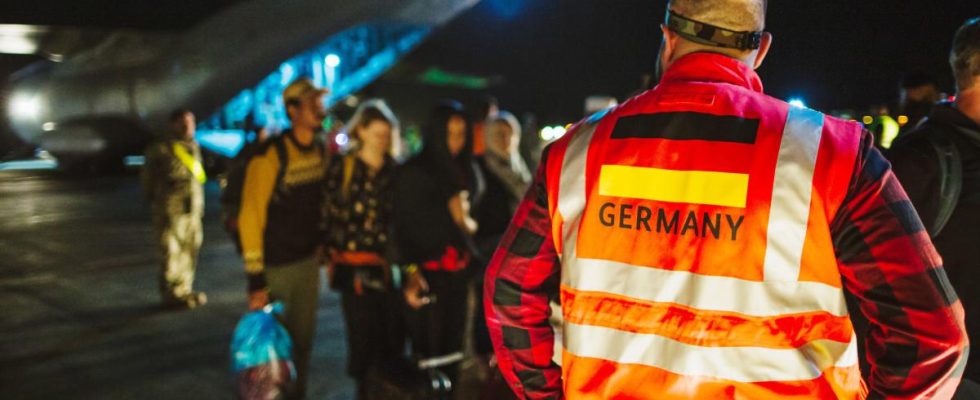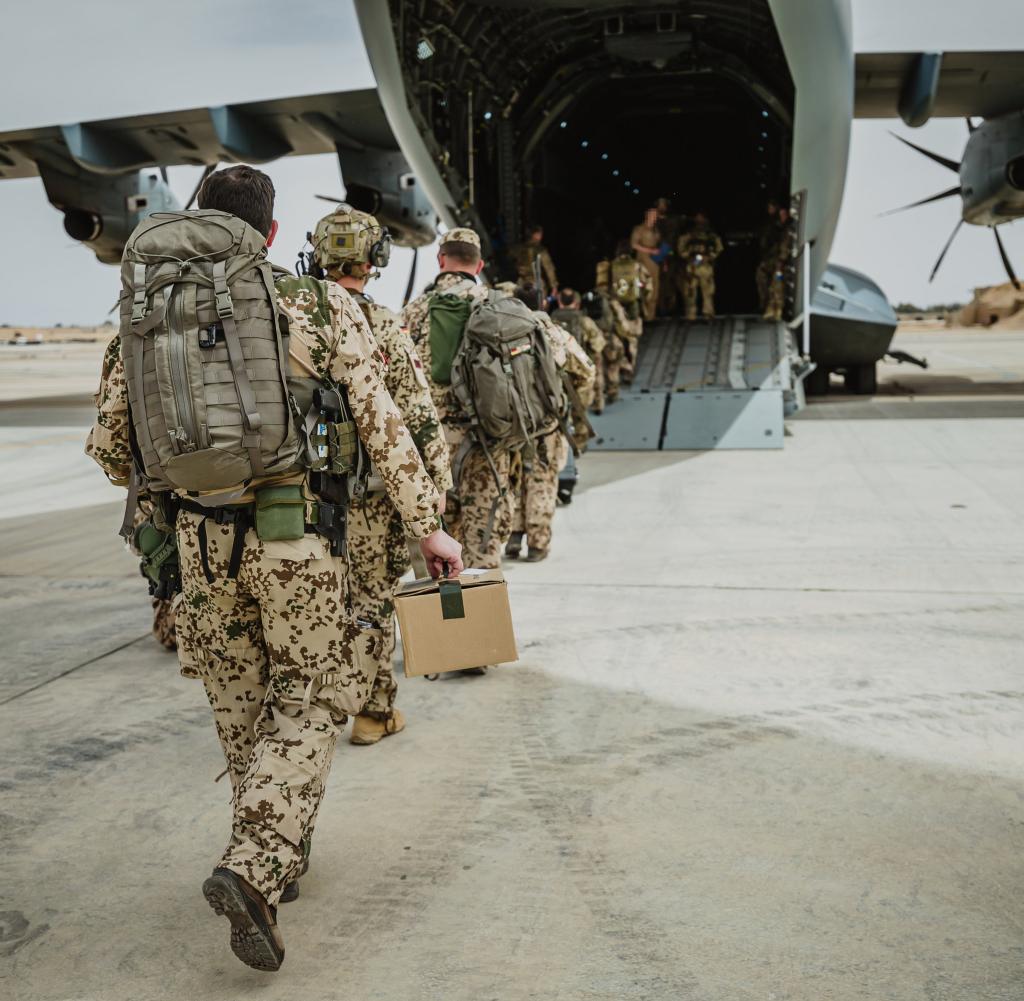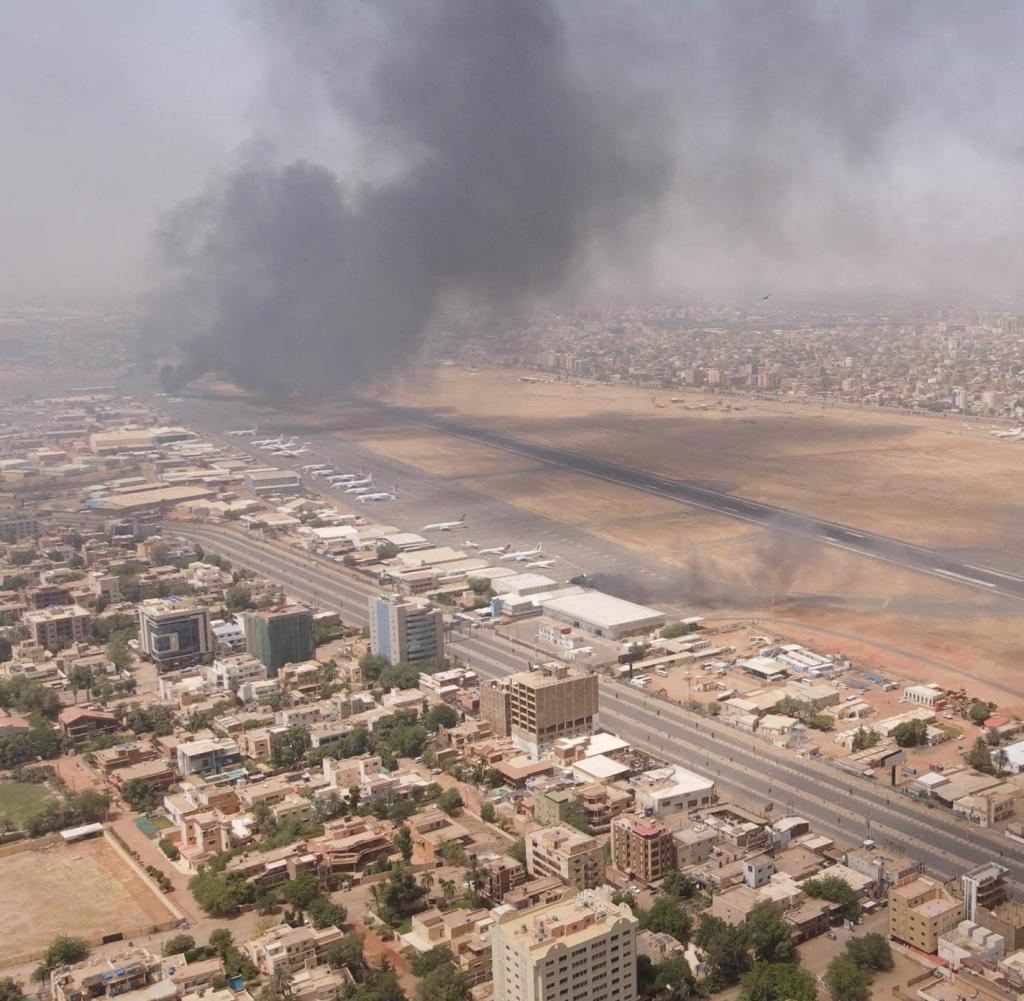Rescuing the local forces from Sudan would set a precedent
Bundeswehr ends evacuation mission
The Bundeswehr has ended its evacuation flights in the embattled Sudan. She flew more than 600 people out of the African country. However, the possibility of further assignments is to be kept open.
After the evacuation of most Germans from Sudan, calls for the rescue of local workers grew louder. The comparison with Afghanistan is flawed, but the debate is justified. Especially since a delicate scenario is also possible in Mali.
Rand the Bundeswehr has flown 500 people out of the embattled Sudan since Sunday, the majority of them Germans. Citizens of other European countries could also be rescued from the war zone. A remarkable achievement involving more than 1000 soldiers.
The evacuation, if necessary armed, can theoretically continue until the end of May. The Bundestag will probably issue the necessary mandate for the deployment of up to 1,600 soldiers this week. Most of the Germans who were in Sudan when the war began in mid-April are now safe. But according to the government’s message, one will only rest when the last citizen has been saved.
The still tense situation is reminiscent of that in Afghanistan two years ago. And although the war of power-hungry generals in Sudan does not have the ideological component of the Taliban seizure of power, the question of the fate of the local forces also arises in this case. Especially since a three-day ceasefire agreed on Monday evening is once again proving to be fragile. The New York Times reported low-flying military jets and gunfire in several areas of Khartoum, as well as “loud explosions.”
As an employer, Germany also has “a duty of care” for the local staff in Sudan in the event of a threatening situation, said Michael Roth (SPD), chairman of the Foreign Affairs Committee. “Then the passport and origin should not play a role,” Roth pleaded with RTL / ntv for an evacuation.
Baerbock sees no need to evacuate
According to the narrower definition of the term local staff, there are around 100 employees of the German Society for International Cooperation (GIZ) in Sudan, plus a double-digit number of employees of the German Embassy. However, when it came to the controversial handling of local helpers by Germans in Afghanistan, public pressure ultimately ensured that the definition was broadened and that employees of external service providers were sometimes also taken into account.
Foreign Minister Annalena Baerbock (Greens) does not see the need to evacuate the Sudanese local workers: “Unlike in Afghanistan, our local workers are not exposed to any special persecution.” The wish was not even expressed by those affected. Besides, keep paying them.
“10 days ago a nightmare swept through Sudan”
Foreign Minister Baerbock and Defense Minister Pistorius have issued a statement on the evacuations from Sudan. Baerbock said it was not the moment to breathe easy. “It is more than uncertain whether the security situation will allow further evacuations.”
The debate is likely to pick up steam in the face of such remarks. The head of the “Afghan local staff sponsorship network”, Marcus Grotian, spoke out vehemently on ARD for an evacuation. One did not learn from the experiences in Afghanistan and instead failed to prepare plans and concepts for the local staff in other crisis countries.
And there are several other conflicts on the African continent, particularly in the Sahel region bordered by Sudan. If you continue to think about the local powers debate, then from a German point of view, a delicate scenario could arise primarily in Mali. There, the Bundeswehr is preparing to withdraw its approximately 1,100 soldiers from the city of Gao.
Hundreds have lost their jobs in Mali
That will enormously weaken the UN mission Minusma there, because the Germans make up the largest contingent. Without Bundeswehr personnel and helicopters, the Minusma patrols against Islamists and militias are restricted. Hundreds of Malian citizens work with the German soldiers through suppliers. According to the narrow definition, no local staff, according to the broader definition, some of them do.
“An evacuation should certainly also be considered there in the event of an acute threat,” said Ulf Laessing, head of the Konrad Adenauer Foundation’s Sahel regional program. Currently, however, economic existential worries are dominating for these people in Gao due to the upcoming departure of the Germans. Around 600 people lost their jobs when the French army left last year. Politically organised, they are now calling for the UN to continue their work.
On the other hand, he is not aware of any cases of targeted security threats by Islamists against current or former helpers of Western armies, said Laessing. “If Gao were to be overrun, that would have to be reassessed.”



